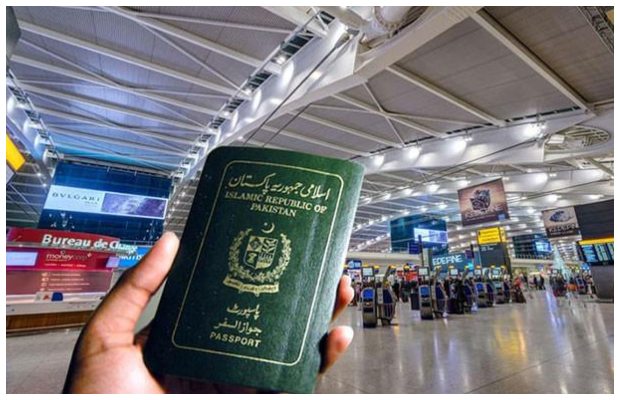
For the fourth consecutive year, the Pakistani passport has been ranked as one of the worst in the world according to the 2024 Henley Passport Index. This index ranks 199 passports based on the number of destinations their holders can visit without a prior visa.
Ranking Details
In the latest rankings, Pakistan’s passport is positioned 100th, tied with Yemen. The only countries ranked lower are Iraq (101), Syria (102), and Afghanistan (103). The Pakistani and Yemeni passports allow visa-free travel to 33 countries, while Iraq’s allows 31, Syria’s 28, and Afghanistan’s 26.
Global Comparisons
Afghanistan remains the lowest-ranked passport, offering visa-free access to just 26 destinations. This is the lowest score in the 19-year history of the index.
At the top, Singapore’s passport holds the number one position, providing visa-free access to 195 destinations, setting a new record. Germany, Italy, Japan, France, and Spain are tied for the second spot, each with access to 192 destinations. Austria, Finland, Ireland, Luxembourg, Netherlands, South Korea, and Sweden share the third position, with access to 191 destinations. The United Kingdom, Belgium, Denmark, New Zealand, Norway, and Switzerland are tied for fourth, allowing access to 190 countries. The United States ranks eighth, with access to 186 destinations.
Notable Achievements
The United Arab Emirates entered the top 10 for the first time, now ranking ninth with a visa-free score of 185. This significant rise is attributed to the UAE’s strategic efforts to establish itself as a global hub for business, tourism, and investment.
Expert Insight
Dr. Juerg Steffen, CEO of Henley & Partners, highlighted that the UAE’s rapid ascent in the rankings is due to deliberate government initiatives aimed at enhancing the country’s global standing. He noted that there is a strong correlation between a nation’s visa-free score and its economic prosperity, with higher-ranking countries often enjoying greater GDP per capita, increased foreign direct investment, and stronger international trade relationships.


